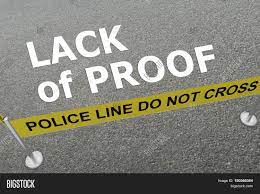Mistakes You Can Make When Claiming Your Homeowner's Insurance
Meta Description: It takes only minutes to file a claim after a natural catastrophe or accident. However, there are some mistakes you can easily make. Read on our article so you can avoid those mistakes. |
Homeowners’ insurance policies protect you from a variety of problems, such as fire, theft, vandalism, and water damage. Most homeowners really don’t understand what they actually own when it comes to insurance. Mistakes are made when people make category assumptions on what is covered and therefore think they have coverage that they do not.
And, claiming insurance can be complicated. Here are some mistakes people make when claiming on their homeowner’s policy:
Lack Of Proof
To get homeowners insurance, you will have to provide proof that you live in your home. This proof can come from a variety of documents, including a copy of your mortgage statement, a property tax bill, or a copy of your lease. However, these documents are not always easy to obtain.

It is important to have a clear record of what you own and its value to help you make a proper claim. Keep receipts, invoices, and appraisals that show items' current value.
Not Reporting Damage
If you've experienced a natural disaster or accident, your insurance company will expect to be notified as soon as possible. It can take time for them to assess the damage, and the longer you wait, the less likely you are to receive full compensation.
Not Having The Right Documents
The biggest mistake you can make is forgetting to produce the proper documents. When an insurance agent asks for proof of insurance, it's usually because they want to see proof of coverage. Generally, you shouldn't need to provide proof of coverage until a claim is filed.
Filing Your Claim Too Early
Once you have submitted the claim, the insurance company has 30 days to decide whether or not to pay it. But if you file your claim early, and the insurance won't pay it.
Not Being Upfront With Your Insurance Company

Since filing a claim involves disclosing personal information, it's always a good idea to be upfront with your insurance company. If your insurance company finds out later that you were dishonest, it could deny your claim.
Final Word
The claims process can be complicated. Make sure you have a clear understanding of how to file claims and some clear guidelines on when to contact your insurance company. Contact an experienced insurance agent so he can walk you through the process. Familiarizing yourself with your policy will help you make better claims.
Related Articles
- Lapses: An Overview
- Mistakes you may make when applying for homeowners insurance
- What To Look For In Your Health Insurance Policy
- The different types of health insurance plans you should know about
- Everyone Should Have These Insurance Policies
- The Advantages And Disadvantages Of Purchasing Permanent Life Insurance
- What consumer benefits does life insurance offer?
- Do I Require Insurance For My Home-based Business?
- What Is Insurance Proof?
- Get homeowners insurance for bad roofs
Reading Rankings
- Everything you need to Know about Health Insurance Cover
- Why your auto insurance claim may not be accepted
- Reasons Why You Might Need To File A Travel Insurance Claim
- The Top 5 Life Insurance Mistakes That People Make
- What consumer benefits does life insurance offer?
- Mistakes you may make when applying for homeowners insurance
- What to Look For When Selecting an Insurance Provider
- The different types of health insurance plans you should know about
recommended
![]()
Insurance role in addressing climate change and sustainable development
![]()
What to Look For When Selecting an Insurance Provider
![]()
What are the principles of good insurance?
![]()
The Top 5 Life Insurance Mistakes That People Make
![]()
Understanding Mortgage Insurance and Homeowners Insurance
![]()
What Is The Role Of A Home Insurance Broker?
![]()
The essential functions of an insurance company
You might like
- 5 Result-yielding Ways To Save Money On Your Homeowners Insurance
- Why You Should Get Over 60s Life Insurance
- The Benefits and Risks of Life Insurance. Do you need one.
- The different types of health insurance plans you should know about
- The Major Policies Offered Under Property Insurance Cover
- 2022’s Top Car Insurance Companies
- Reasons you may need to file a travel insurance claim
- The insurance industry. Growing and Declining Sectors







